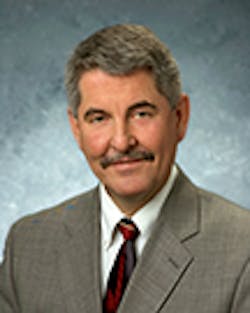Thirty years ago this past October, a young Marty McFly went back in time another 30 years and had the time of his life. The date was October 21, 1985, and the movie was “Back to the Future” starring Michael J. Fox. Christopher Lloyd played Doc Brown, the eccentric professor who transformed a DeLorean into the time machine that made time travel possible. After Marty’s deep dive into 1955, the movie ends with the promise of a sequel and a trip into the real future.
How strange to watch the vision of tomorrow as portrayed in “Back to the Future II,” now living in what they imagined as a world of hover boards, flying cars, robotic gas station attendants, self-lacing shoes and clothes that auto-fit and self-dry.
Doc Brown, Marty, his future wife, Jennifer, and Doc’s dog, Einstein, make the journey in an effort to alter history at a critical juncture for the sake of posterity. As you might expect, they only make matters worse, but that’s what entertainment like this is all about.
The date they arrived was October 21, 2015. Though there’s no Facebook in the film, there actually were a number of developments the story got right, including personal drones, mobile payment technology, biometric devices with fingerprint recognition and video communication a la Skype. And yes, we still drink Pepsi.
Making predictions about the future seems to be one of the great recurring themes in magazines, books and movies during the past 50 years. Even when filmmakers get it wrong, as in Stanley Kubrick’s “2001: A Space Odyssey,” it’s entertaining. For people in the business world, and especially those of us in the oil industry, keeping an eye on where things are trending is a fairly important survival skill. Businesses have always had to remain nimble and alert because the world is ever changing, and seemingly at a faster pace every day.
The Ordeal of Change
Change is a challenge for everyone, but we usually find ways to make necessary adjustments when the changes come piecemeal. On the other hand, when a tidal wave of new technologies hits all at once, it can make us feel like we are drowning.
How I long for the good old days of my youth when nearly any task on a car’s engine could be figured out with a wrench and common sense. Nowadays, our cars are far more complex, as are our phones, our jobs and our lives. Computers are in most homes in America, but how many IT people live in your house? Not many homes come with an IT technician, so we have to learn how to fix routers, de-bug software, figure out anti-virus programs and resolve Internet access issues to do basic daily correspondence (via email, of course).
In short, your customers live in a world of increasing mental clutter. In addition to complications caused by all these technical advances, their minds are filled with a trunk load of relationship, career, parenting, health, housing and neighbor issues. It’s simply a side effect of living a busy life in the modern world. Our heads are filled with a continuous white noise or mental chatter that serves as a perpetual distraction.
All too often, this is the mental state of your customers when they pull in to have their oil changed. They are not thinking about what kind of oil to use. Many probably don’t even know that there is a choice to be made. Their presence at bay door No. 1 is a declaration of trust. They rely on you because you are the expert. This is the business you have been trained for. They are often not interested in becoming experts in one more thing. Their world is already too complicated.
Our Task
How do we help these people take care of their vehicles if they’re tired and not interested in learning something new? I recommend we tell them: “Our years of experience have shown us synthetic motor oils are the best for your car and give you the most benefits for your money.” Twenty five years ago things were different. The average person had no idea what synthetic oils were. Today, a majority of people have heard of this class of high-tech oils, and more people than ever have had experience with synthetics.
In a fast-oil-change situation, you don’t have a lot of time for lengthy dialogue. Hence, it’s useful to have literature on hand you can provide the customer in the event they are uncertain and need reassurances. One mechanic I know told me, “If there is a backlog of people waiting, I give them a brochure while they are waiting so when they get to the service desk, they already have their questions. I say, ‘Here’s a pen. Circle anything on the brochure you have questions about.’” It’s an effective, no-pressure method of educating people in a non-threatening way.
Predictions
Making predictions about the future is a risky venture. Some people predicted by the end of this summer astronomers would declare three new planets in our solar system. In the end, Pluto became an outcast and our total was reduced to eight. Nevertheless, I will go out on a limb and make this pronouncement about the future: The oil change industry is not going away for a long time. And there’s no evidence anywhere for a diminishing market for synthetics. This is a trend quick lube operators should be paying attention to.
Ed Newman is Advertising Manager for AMSOIL INC., the leading independent manufacturer of synthetic lubricants. He can be contacted at: [email protected] For more information, visit: www.amsoil.com
About the Author

